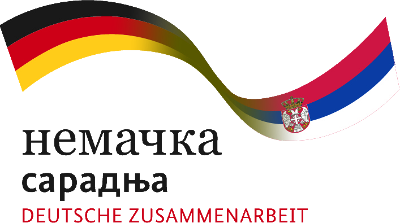SUSTAINABLE ENERGY SOURCES

KeepWarm results, resources and offered services
KeepWarm Guidance Booklet
This guidance booklet has been created as a means of helping you navigate some of the key issues involved in upgrading your district heating (DH) by using more sustainable energy sources, namely from a variety of viable renewable energy sources and/or excess heat harvestable from industrial/commercial processes. Integrating and fully-switching to these greener DH alternatives makes sense not only at an operational level, but is greatly supportive, if not essential, for the successful implementation of a variety of Europe’s flagship policy initiatives.
This Guidance Document has been translated into the languages of KeepWarm project partners. Find here the different versions:
Austrian, Croatian, Czech, Latvian, Serbian, Slovenian, Ukrainian
KeepWarm Report on Replication Models
This report points out eleven models developed within the project which can be used as good practice examples and showcase for successful modernisation of various DHSs. These models represent a continuous work and highlight main parts of the KeepWarm tailor - made approach.
Additional useful resources
The resources available below and sorted by sub-themes, provide further knowledge on individual sustainable energy sources used for district heating:
- Low temperature district heating concepts - EE; Decarbonisation; Technologies; Ultra-low DH network concepts; Heat losses; Case studies (2017, RELaTED)
- Upgrading the performance of district heating networks - Best practice instruments and tools for diagnosing and retrofitting DH network - Retrofitting; Upgrading; Software tools; Diagnosing; Modelling; Distribution network (2018, Up-Grade DH)
- Upgrading the performance of district heating networks - Best practice examples on upgrading DH Projects - Retrofitting; Upgrading; Renovation; District heating optimisation; Case studies (2018, Up-Grade DH)
- Manual of good practices for setting up RHC integrated support schemes - Case studies; Recommendations for support schemes (2014, FROnT)
- Integrated Support Schemes for RHC- Assessment Report - Support schemes; Financing (2014, FROnT)
- Technical Report on the Elaboration of a Cost Estimation Methodology - Costs calculation; Financial planning of project (2014, FROnT)
- Strategic Policy Priorities for Renewable Heating and Cooling in Europe Barriers; Policy recommendations; Strategic priorities; Financing (2016, FROnT)
- End user decision making factors for H&C system choices - Survey; Purchasing criteria; Perception of RES H&C systems (2014, FROnT)
- Handbook on Small Modular Renewable District Heating and Cooling Grids - Technologies; Storage; Distribution network planning; Case studies (2017, CoolHeating)
- Best Practice Examples of Renewable District Heating and Cooling - Case studies (2016, CoolHeating)
- Guideline on drafting heat/cold supply contracts for small DHC systems - Supply contracts; Regulations; Case studies (2017, CoolHeating)
- Digital roadmap for District Heating and Cooling - Production; Distribution; Buildings; Integration of mulitple energy sources; Barriers for roll-out of technologies (2018, Storm-DHC)
- Smart solutions overview: Smart Thermal Grid - Smart thermal grid; Thermal energy storage; Extracting thermal energy; Thermal exchange and connected buildings: Remewable business models (2018, Ruggedised)
- Integrated Infrastructure Solutions – Waste Heat Recovery - Open district heating using waste heat; District heating rings; Smart local thermal districts (2018, GrowSmarter)
Solar district heating
- Solar plants database – EU - Technologies; Case studies (2016, Solar District Heating)
- Solar District Heating guidelines - Solar technologies; Placement of solar collectors; Cost calculation; Feasibility; Implementation; Integration of ST system in DH network; ST system components (2012, Solar District Heating)
- SDH in urban planning - Integration of SDH in urban environment and buildings; Implementation (2012, Solar District Heating)
Biomass district heating
- Practitioner Guidebook – main results - Biomass trade centres; Business models (2017, Biores)
- Inventory of applicable quality standards for local woody bio-energy supply chains in Bulgaria, Croatia and Serbia - Wood fuels; Biomass supply chains (2015, Biores)
- Status Report on sustainability in forestry and along woody bio-energy supply chains in Bulgaria, Croatia and Serbia - Wood fuels quality; Biomass certification (2015, Biores)
- Model agreements for supply and sales - Templates of different types of contracts (2017, Biores)
- Development of a Sustainable Bioenergy Market in Serbia (DKTI) Technical assistance module: Publications (2014, Bioenergy Serbia)
Excess heat district heating
- The Role of Low Temperature Waste Heat Recovery in Achieving 2050 Goals: A Policy Positioning Paper (2020, ReUseHeat project)
- Waste for heating and cooling: how district energy transforms losses into gains - Waste heat capture; Case studies (2017, UNEP)
- Literature review of energy use and potential for heat recovery in the EU28 - Energy consumption of the country; Energy consumption of the industry (2016, I-TheRM)
- Report on estimation of energy, environmental and economic potential for heat recovery in EU28 - Heat recovery; Opportunities; Technologies; Industry; Case studies (2017, I-TheRM)
Geothermal district heating
- Geothermal district heating potential in Europe - Mapping; Analysis of national renewable energy plans; Policy recommendations (2014, GeoDH)
- Reports on evaluation of market barriers for Geothermal District Heating in Europe - Market barriers; Regulatory barriers (2013, GeoDH)
- Regulatory Framework for Geothermal District Heating Systems in Europe - Geothermal resources; Ownership; Licensing system (2013, GeoDH)
- Manual for implementing sustainable support schemes for geothermal district heating systems - Exploitation risk for geothermal resources; Support schemes; Financing (2014, GeoDH)
Terms and Conditions presentations from external speakers
The KeepWarm website has not reviewed, is not responsible for, and accepts no liability in respect of any information, graphics or images contained in the presentations provided by the respective speakers at events or trainings. Moreover, the KeepWarm website does not warrant that the information contained in the presentations is complete and correct and shall not be liable whatsoever for any damages incurred as a result of its use. The authors alone are responsible for the content of the published presentations in the current website.



